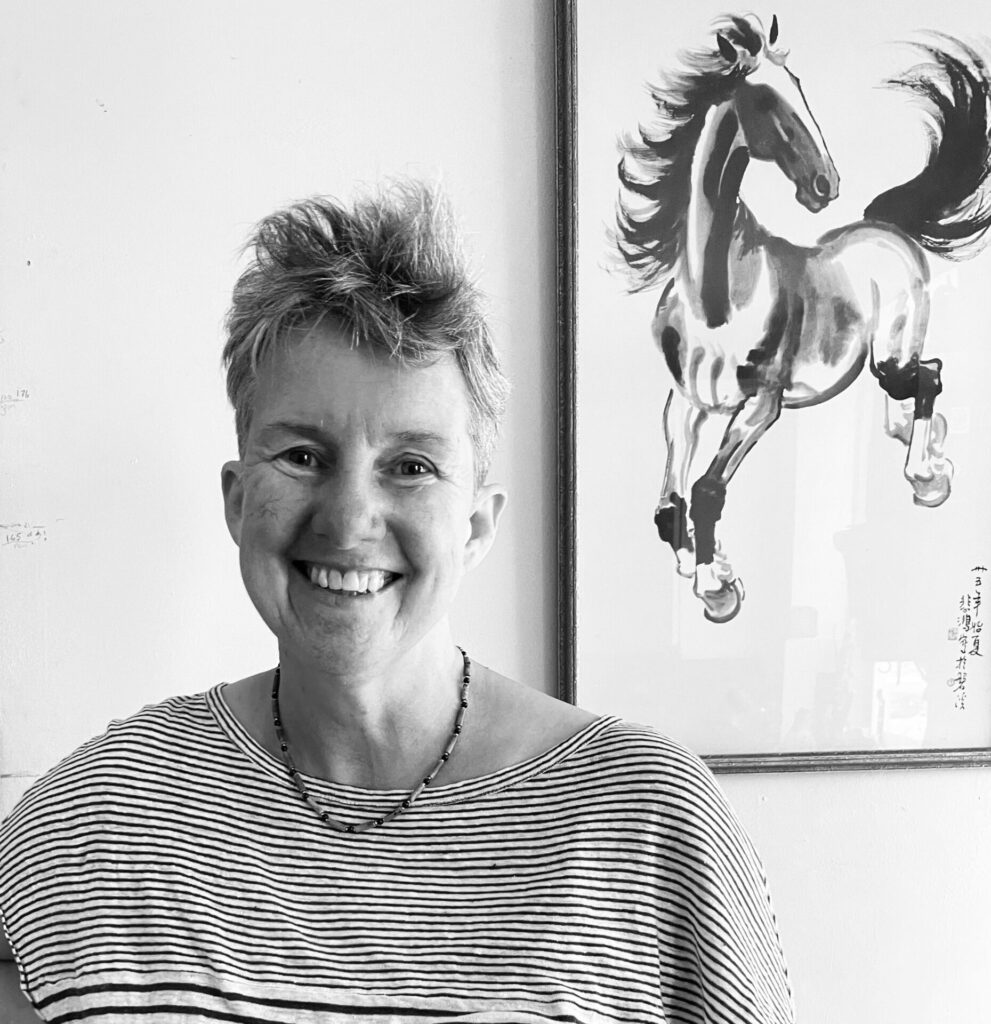Alyson Hallett was born in Somerset. She was born into a land of peat and rhynes, little drainage channels that criss-cross the Levels to make it habitable. Alyson was the first generation to go to university, and she chose the University of East Anglia where she studied comparative literature. Her love of world literatures, translation and diverse cultural traditions has never abated.
Alyson has published 20 sole and co-authored books of poetry, prose and short stories. She has also written an essay for Radio 3, drama and an audio-diary for Radio 4. She frequently collaborates with visual artists, dancers, scientists, sculptors and is interested in how language inhabits 3-dimensional spaces. She has a poem carved into Milsom Street pavement in Bath by Alec Peever, poems carved into boulders and stones in Cornwall and the Peak District. For twenty years, she has been curating the international poetry and public art project, The Migration Habits of Stones, which has been funded by Arts Council England.
Alyson is a Hawthornden Fellow and has taught at Moniack Mhor and Arvon. She has undertaken many residencies as a poet and is currently completing a translation of a book by Emma Santos from French to English with her colleague Fiona Hamilton. She has also been part of a co-creative team exploring how to return rocks to Aotearoa after they were brought the the UK ten years ago. This project has been funded by University of Bristol Brigstow Institute.
Alyson has always counted raindrops, plants, clouds, birds among her audiences. Her understanding of language in relation to democracy is three-dimensional, radical, inclusive of the more than human. She has pioneered work with rocks and stones, challenged ideas of them being inanimate, preferring to bring an attitude of respect and listening to relationships with material beings. As a queer researcher she shrivels the binary of animate and inanimate and encourages a wider, more complex frame from which to fall in love with the world. She recently completed the Introduction to Deep Listening with the Centre for Deep Listening, based on the work of Pauline Oliveros.


